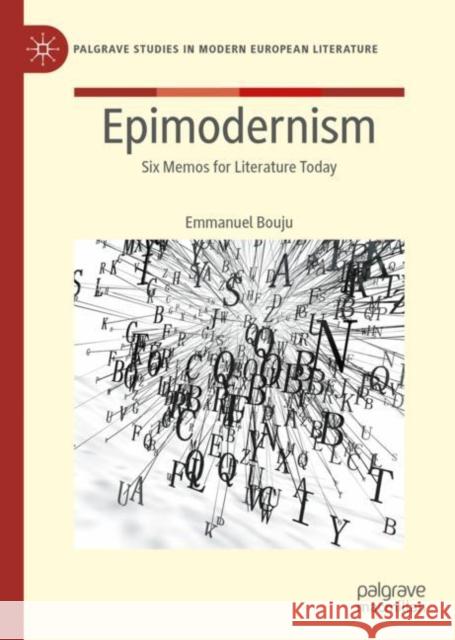Epimodernism: Six Memos for Literature Today » książka
Epimodernism: Six Memos for Literature Today
ISBN-13: 9783031099236 / Angielski / Twarda / 2023 / 220 str.
Epimodernism: Six Memos for Literature Today
ISBN-13: 9783031099236 / Angielski / Twarda / 2023 / 220 str.
(netto: 438,56 VAT: 5%)
Najniższa cena z 30 dni: 459,42 zł
ok. 16-18 dni roboczych.
Darmowa dostawa!
Postmodernism has had its day. Are we now in the era ofepimodernism? Reinterpreting the six “memos” that Italo Calvino suggested more than thirty years ago for “the new Millennium”, in this acclaimed book Emmanuel Bouju identifies six new values for literature in the twenty-first century: Superficiality, Secrecy, Energy, Acceleration, Credit, and Follow Through. Based on the principal meanings of the Ancient Greek prefixepi– surface, contact, origin, extension, duration, authority, and finality – these values represent six different ways of relating to the legacy of modernist utopias, reorienting postmodern critique and rebooting, with all due irony, its various forms of engagement and empowerment. Equal parts cultural criticism and literary creation, this highly original essay both enacts and explores the epimodern turn in contemporary European literature. Rigorous and humorous, provocative and playful,Epimodernismhelps us to understand what literature can describe, imagine, and invent in our challenging times.
Postmodernism has had its day. Are we now in the era of epimodernism? Reinterpreting the six “memos” that Italo Calvino suggested more than thirty years ago for “the new Millennium”, in this acclaimed book Emmanuel Bouju identifies six new values for literature in the twenty-first century: Superficiality, Secrecy, Energy, Acceleration, Credit, and Follow Through. Based on the principal meanings of the Ancient Greek prefix epi – surface, contact, origin, extension, duration, authority, and finality – these values represent six different ways of relating to the legacy of modernist utopias, reorienting postmodern critique and rebooting, with all due irony, its various forms of engagement and empowerment. Equal parts cultural criticism and literary creation, this highly original essay both enacts and explores the epimodern turn in contemporary European literature. Rigorous and humorous, provocative and playful, Epimodernism helps us to understand what literature can describe, imagine, and invent in our challenging times.











